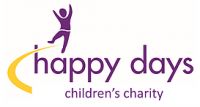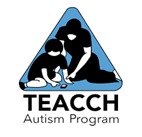Sleep hygiene information for parents
Sleep hygiene information for parents:
Things to consider when trying to ensure a good sleep routine ...
Caffeine
This can be found in all fizzy drinks and some cordials as well as tea, coffee and hot chocolate. It is important for your child to avoid these drinks as much as possible if they have sleep issues, especially after mid-day.
Eating
Make sure that your child does not have a lot to eat directly before they go to bed. Try and plan your day so that their main meal of the day is not during the evening and have a lighter meal at ‘tea-time’. If your child is hungry at bedtime some light snacks can be helpful and may even promote sleep eg. a drink of milk, a small bowl of porridge, a banana, yoghurt or cheese, cherries, cereal, chicken/turkey.
Exercise
If a child has been mainly inactive throughout the day they may have difficulty falling asleep. It is good for your child to do some sort of daily exercise every day eg. playing outside, going for a walk. However, it is important to do this during the day and not before bedtime as exercise just before bed can prevent sleep.
Bedroom
If your child is having sleep issues the bedroom may need adjusting so that it is not a play area. It is important to make their room a ‘sleep’ area and distinguish this from a daytime ‘play’ area. Sometimes toys can be removed at night whilst still maintaining a place where your child feels safe and secure eg. use of a nightlight or special bedtime bear. Keep a good room temperature that is not too hot and try to reduce any noise.
Routine
Having a set bedtime routine is the best way to establish a good sleep pattern for your child. A routine can start 30 minutes to 2 hours before bedtime. Include ‘wind down’ activities such as a warm bath or shower, reading a story. Sticking to a set pattern each night will give your child time to calm down before sleeping. Also make sure your child goes to the toilet before bed.
Technology
Try to avoid TV, mobile phones, tablets, iPads, computers close to bedtime as they produce a light that suppresses sleep hormones in the brain.
Self-settling
This is important to get your child to go to sleep in the environment they sleep in, try to avoid falling to sleep downstairs then carrying them up, or falling to sleep drinking a bottle. All these things can cause your child to wake up during the night. After bath time, or chilled time, take your child into the bedroom if possible, read stories, look at photo albums, use a calming voice, try not to get into demands or chats. Make a deal if needed on how many stories, etc. Then leave your child to fall asleep or, if your child will not, you may have to stay with them, try not to hold hands or touch them, give no attention.
Your child is doing this for attention, you are doing the right thing even if it feels like torture. Keep busy, wash the pots, put headphones in to listen to music, chat to people, if you need to enter the room but remember you are a robot, get back out ASAP.
Keep calm you can do this. Stay focused and consistent after 4-5 days you should start to see a big difference.
If your child leaves their bed during the night try to lead them quietly back to bed without engaging them in conversation. This may need to be repeated several times, but it is important that your child learns that they will receive the same response from you each time.
Humberston Park School
If you need any support or help with your child’s sleep issues, please do not hesitate to contact the school and one of our Sleep counsellors (Fiona Crampin or Kelly Mitchell) will give you a call.






